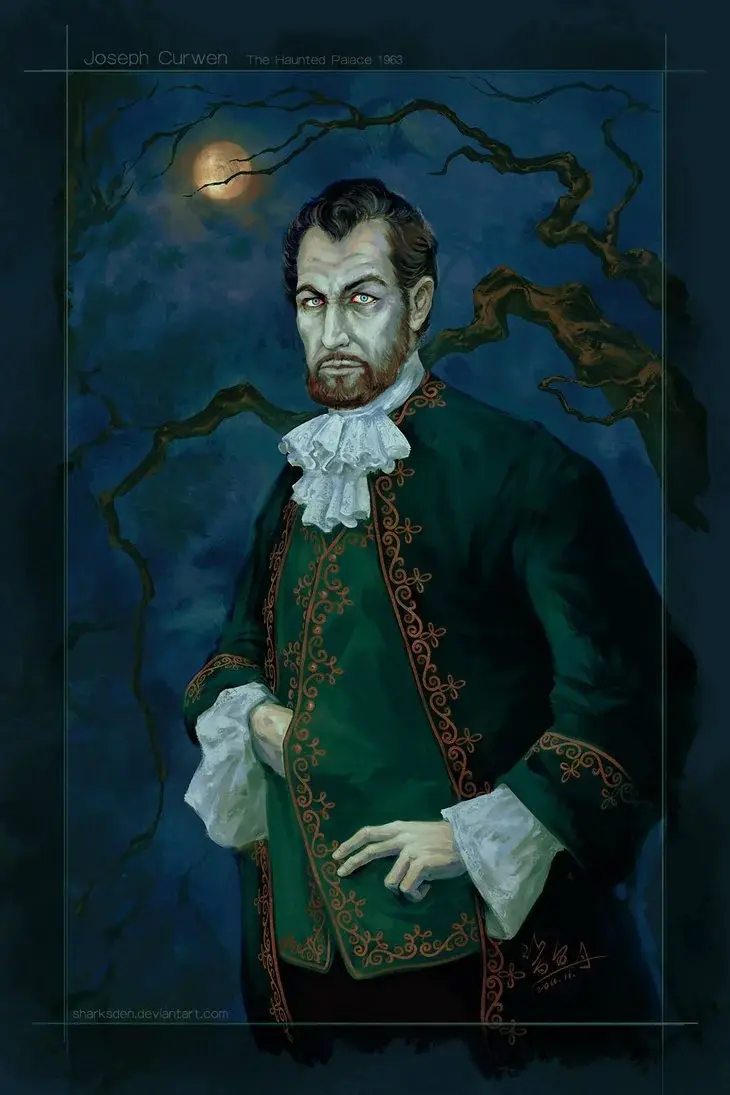this post was submitted on 21 Aug 2023
9 points (100.0% liked)
H.P. Lovecraft
4 readers
1 users here now
Community for fans of Lovecraft and Cthulhu mythos.
founded 2 years ago
MODERATORS
you are viewing a single comment's thread
view the rest of the comments
view the rest of the comments

Part II is titled An Antecedent and a Horror. It presents the story of Joseph Curwen as researched by Ward and so has holes in the narrative where records were more thoroughly destroyed.
Curwen is a supposed chemist, apparently in his early 30s, who fled from Salem to Providence following the beginning of the Salem Witch Trials, for he believed that his experiments may attract unwanted attention from ignorant townsfolk. Thirty years after resettlement, he appears to have physically aged a maximum of five years. Though he explains away this anomaly as good genetics, people come to believe him an alchemist who can provide cures for their common ailments. Though he does not dissuade people away from these claims, his supposed antidotes do not work.
Curwen becomes an enigma to the people of Providence as he eventually reaches at least his 90th year with no signs of debilitation or ageing. He orders all manners of powders, bottles, and boxes to his residence, and his purchases from local chemists becomes a topic of gossip. He is seen at all hours of the night riding to and fro between manor and farm, the latter being managed by a pair of Native American servants. odd sounds are often heard from this farm in the dead of night.
Despite his eccentricities and a general aura of fear surrounding him, Curwen is regarded as a scholarly and well read, generous, and a shrewd businessman. He eventually attracts the attention of another scholarly gentleman - Mr Merritt - from nearby Newport, who pays Curwen a visit to discuss literature. Mr Merritt is frightened away when he discovers numerous blasphemous tomes, including a copy of the Necronomicon which was rebound to appear as a more innocuous occult tome.
Now over a century old, Curwen is a social outcast. Despite this, he holds a virtual monopoly over shipment of certain goods to Providence, and so he continues business. He continues to donate generously to civic projects in order to keep up pretences. He is caught numerous times in the midst of nighttime ramblings through a local cemetery.
Eventually a new scandal arises when people note the rate of disappearances among the sailors Curwen employs. Furthermore, it has been a while since he was last caught on his skulks through the cemetery. People become increasingly hesitant to work for him, but Curwen's business does not appear to be impacted. He turns first to financial domination and eventually to outright fear in order to coerce sailors into loyal service. Wanting to make an in-road back into society, he forces one of his captains to break an engagement between his 18 year old daughter and a man from town. Curwen, now well over a century old, marries the young woman and sires a daughter. The breaking of this engagement will prove his eventual downfall.
Ezra Weeden, a sailor and former fiance of Curwen's wife Eliza, seeks revenge on Curwen and singularly dogs Curwen during his suspicious endeavours. Several nights he hears Curwen interrogating apparently distressed subjects. Oddly, Curwen questions them in foreign languages and on obscure subjects that occurred centuries past. He spies several shipments of coffins travelling up river to a hidden cove, bypassing the docks and any suspicion from the town. In 1770 a ship with a cargo of mummies is forbidden to dock, and Curwen takes a defensive position on the medical properties of the balms, all but confirming but never admitting his involvement in the affair.
Weeden, now possessing enough information to indict Curwen, seeks aid in town. He finds aid in a cabal of well-to-do gentlemen and a mob of willing raiders, all of whom wish to bring Curwen to justice. They conduct a nighttime raid on Curwen's properties while preventing reinforcements from the river. Records of the raid are lost, other than a river watchman describing horrific noises arising from Curwen's lands, including an ominous curse and plume of red smoke on the wind. Curwen's laboratory is razed, his experiments destroyed; Curwen himself is executed and buried in an unmarked grave.
Lovecraft manages to tell a thrilling and evocative story without yet introducing us to the actual horrors of this tale. It's very clear that Curwen was engaging in necromancy in order to gain historical secrets, and I found myself invested in the nighttime raid; Lovecraft manages all of this without one mention of zombies or gratuitously violent scenes. It's a masterclass in horror writing.